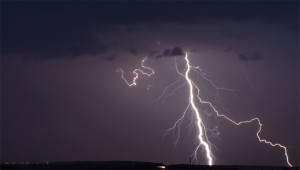Community prepared for future emergencies
PIKWAKANAGAN – This summer, many of our First Nations were hit by a series of storms. In July, citizens of Pikwakanagan in the Ottawa Valley braced themselves for storms that brought down trees and Hydro lines, leaving residences without electricity for more than 27 hours.
Executive Director of Operations, Vicky Two-Axe, said that trees were blocking roads, driveways, some fell on homes and Hydro lines were down outside of four homes.
“We knew there was a lot of damage and we needed help in clearing the roads of the trees,” said Two-Axe. “When Maureen Kauffeldt, Health Services Manager, Merv Sarazin, Public Works Manager and I toured the community it was more damage that at first noticed. We did not declare a state of emergency we just knew people needed help. With the control group in place we had people clearing the driveways and roads where the senior lived in case of emergencies.”
She said that the OPP put up tape in areas where the Hydro lines were down and families were evacuated.
“We had the big trees removed from the homes as we knew they we calling for more storms,” said Two-Axe. “The main concern was for the seniors, and the vulnerable clients –those with high health needs.”
Clean up continued the following day with community members taking a greater role in helping, but they were still without power.
“The concern was the heat and feeding the elders and getting them water,” said Two-Axe. “Administration staff prepared lunch for the elders and had them delivered by the staff and summer students. The power came on later that day, only to go out again as transmission lines caught fire. Hydro was also surprised as to how many poles were down and we knew it would take a while to get hydro back up.”
Following this big storm, tornado warnings were issued for the area. Pikwakanagan’s emergency team gathered to plan what will happen next. Thankfully, the storms passed.
Two-Axe said that this was the first time that the community had to go through an exercise like this, but they kept notes for what worked to be prepared for next time.
Overall, this is the first time we had to go through an exercise like this and we think the plan worked out and we also kept notes as to what worked and what we need to look out for in case there is a next time.
Wikwemikong Unceded Indian Reserve has developed a book called “Emergency Planning and Self Care for Families”. To get a copy, contact the Wikwemikong Health Centre (705) 859-3164. For more information online about Emergency Preparedness, visit http://www.emergencymanagementontario.ca



